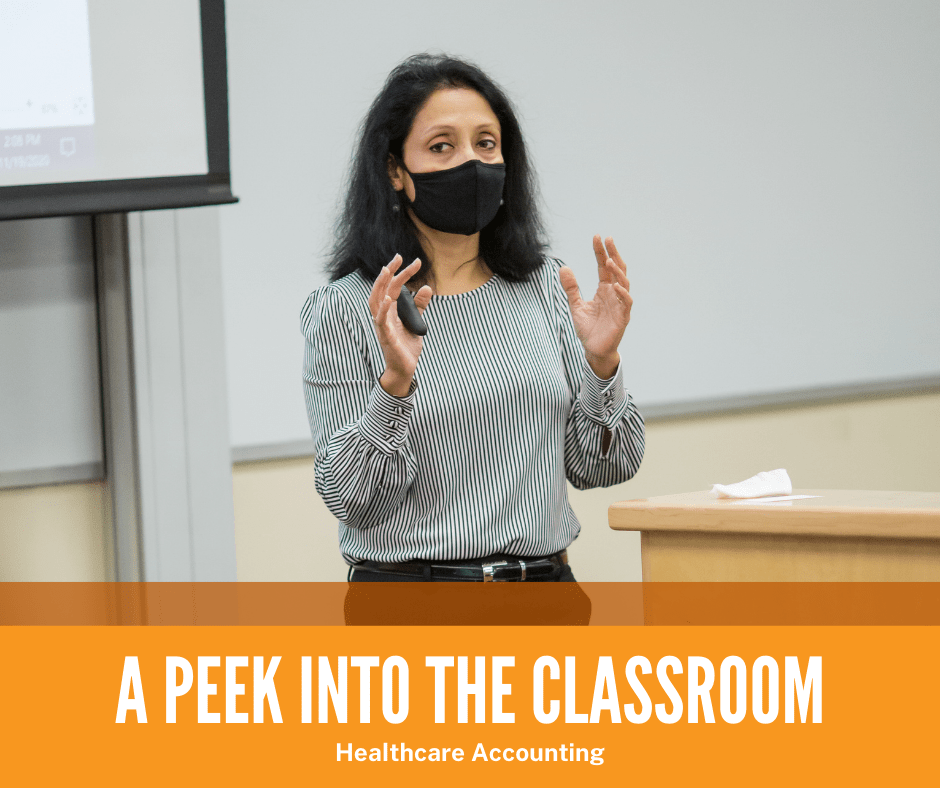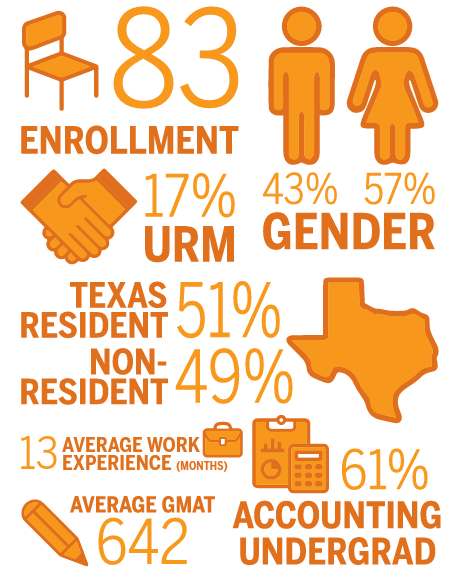Oil and natural gas power our homes and give us products as varied as eyeglasses and MRI machines. Although renewable energy is increasing as a percentage of global energy production, it’s still small, meaning oil and gas will be key energy sources for the foreseeable future.
At the same time, oil and gas companies are working to produce oil more sustainably to help curb climate change, and they anticipate climate-related regulations. In this dynamic environment, expertise in oil and gas accounting is becoming indispensable — especially in Texas, the largest oil and gas producing state, where the industry is one of the largest employers.
In class, professor Paul Parsons imparts lessons on sustainability and the energy transition. “Oil and Gas Accounting and Sustainability” shows students they can do interesting, important work toward a healthier planet as a part of the oil and gas accounting field.
Parsons worked for more than two decades with Occidental Petroleum Corp. before founding Energy Training Resources, an organization that offers courses for the oil and gas industry covering operational, commercial, accounting, and sustainability topics.
Q: Why is oil and gas accounting an important field for Master in Professional Accounting students to consider?
A: Oil and gas are in many everyday products we use, from desks students sit in to buses that bring them to class. Oil and gas will remain an important source of energy, and likewise, oil and gas accounting will remain a useful skill in many areas of the country where oil and gas are produced. Companies will have two major responsibilities — being sustainable and reporting on their sustainability — and accountants will be involved with both. Mandatory reporting requirements will affect essentially all U.S. public companies in all industries, and the initial implementation will require an abundance of accounting and auditing expertise.
Oil and gas may seem like an “old” industry, but it’s actually a vibrant, global industry that’s technologically advanced and constantly evolving. If you’re sustainability-minded, oil and gas is actually a good place to work. You can be part of meaningful change.
Q: How did you revamp the course to cover sustainability?
A: Sustainability is an emerging topic that will affect everyone in every industry, and it’s becoming a very important topic in reporting. Companies are now voluntarily reporting on sustainability. Every big company has a sustainability report. But there are more rigorous reporting regulations internationally, and in the U.S. there’s a push by government agencies to get corporations to report more and in a consistent manner so companies can be compared more easily. The Securities and Exchange Commission issued a draft proposal last year that would make climate reporting mandatory.
Q: What will students learn?
A: There are specialized accounting rules for oil and gas production because it has unique characteristics. Students learn these rules and regulations, but also about the fascinating industry operations that drive accounting needs, including petroleum geology and exploration, mineral rights acquisition, drilling, production, and project economics. Lessons on sustainability include greenhouse gas emissions, diversity and equity, habitat protection, water conservation, recycling, and proper waste disposal. This knowledge can give students an advantage, whether they work for an oil and gas company directly, or with a public accounting firm that has oil and gas audit clients.
Q: How do you make the course interesting and interactive?
A: I ask questions as I go, students use a clicker to answer, and then I display answers for everyone to see. This method stimulates discussion. I also decided to forgo a course textbook and instead use slides with videos, photos, and animations. The industry is changing so fast that textbooks just don’t keep up. We do a good deal of group work, too. In one project, groups of students dissect sustainability reports for three companies — a midstream, upstream, and downstream company — and evaluate how the companies reported on metrics and targets and the reports’ effectiveness.
Q: What do you hope students take away from the class?
A: I want them to be able to interview well. To be conversant about oil and gas, but also knowledgeable about sustainability. Also, on the renewable side there’s a tremendous amount of money going into new projects, and I want them to have that expertise.
Parsons teaches “Oil and Gas Accounting and Sustainability” each fall semester.




